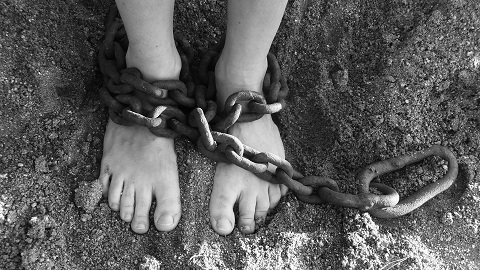
In 2019 certain politicians suggested that reparations should be paid to the descendants of Africans trafficked to and enslaved in the Americas as part of the Atlantic slave trade. Should they?
What does the Bible say about reparations?
The Bible first addresses reparations in a song that Moses wrote just before his death (Deuteronomy 32). The Bible restates what was said in Deuteronomy 32:35 several times. One of those times is Romans 12:19.
Romans 12:19 and the surrounding verses give the Biblical view of reparations. This article explains four points about reparations in this passage.
Do not Try to Get Reparations for Yourself
Bible versions state the beginning of verse 19 differently: "avenge not yourselves" (KJV), "don't try to get even" (CEV), "never seek revenge" (CJB), and "not retaliating for yourselves" (BV). But they all are saying the same thing: do not try to get reparations for yourself.
Were you wronged? Did someone hurt you? Were you unfairly treated? It is not up to you to get even. You should not strike back at the person or persons who hurt you.
Make Room for Punishment
The next phrase in verse 19 says to give a place for punishment.
Instead of striking back, make room for punishment. Back off. Clear the way. Punishment is coming. Give it room. Don't get in its way.
If you punish someone for something he did to you, what will happen if someone else was going to punish him and punish him better? He will not be able to, because you have already done so.
There is someone who is better able to get reparations. Leave it to Him.
"Reparation is for Me, I will Repay"
Vengeance, revenge, avenge, retaliation, these are the words used in different Bible versions in this phrase. They involve the same thing that reparation does: a pay back.
"Vengeance is mine; I will repay, saith the Lord" (Romans 12:19 KJV).
Not only is God able to get better reparations, it is His job. This is mentioned several times in the Bible (Deuteronomy 32:35; Psalm 94:1; Isaiah 34:8; Jeremiah 51:36; Nahum 1:2; Hebrews 10:30).
In addition to stating that reparations are His job, God throws in a promise, "I will repay."
Why are certain politicians trying to get a group of people who did nothing to trafficked Africans to pay their descendants when God has already promised to take care of it? If God said that He would take care of it, it has already been taken care of.
Has someone hurt you? Has someone wronged you? This promise from God is also for you.
God will repay. Period. Trust God to do what He said He would do.
Prevention is the Best Cure
The verses before and after Romans 12:19 are about prevention.
If the injustice is prevented, the reparation will never be needed.
How do you prevent the need for reparations? Be peaceful with all people (verse 18) and treat your enemy nicely (verse 20). Look at the people who are your enemies. If they are hungry, give them food. If they are thirsty, give them a drink. If everyone did this, there would never be a situation where reparations were needed.
If the traffickers had been peaceful with the Africans and treated them nicely, they never would have trafficked them and no one would be mentioning reparations today.
The politicians today who advocate reparations completely ignore prevention. They do not live peaceful with others and they are not nice to their enemies. Will their enemies be seeking reparations from them in the future for the way they are mistreated by them?
How are you treating the people who are mean to you? Are you fighting with them? Do you want to hurt them? Stop it. Live peacefully with them. Do good to them. Look for and provide their needs. This is the correct way to live.
When God does not Repay
I have been hurt and abused by many in the past. Usually when it happened, I followed this advice. I did not seek reparations. I left it to God to repay. But He didn't. Nothing happened to the offenders. Was I wrong?
My answer to this is twofold.
First of all, often I was wrong in wanting God to repay. Sometimes the offender did nothing wrong and it was more me and that I (or someone else) did the wrong. Other times what the offender did was not deserving of punishment. In some cases, I have found myself later doing the same thing to others and I did not expect or want God to punish me.
God can judge and will judge. When He finds violators, He will punish. Leave it up to Him.
Reparations can get to be a mess because almost everyone has been hurt by others. If you pay reparations to the descendants of Africans, what about Christians who have been mistreated and silenced? What about all the others who have been unfairly treated? How would you even start repaying everyone? It would be impossible. Leave it to God. Let Him judge and repay.
Secondly, immediate and obvious punishment is not always the action that God takes. God may want to inflict a long and grueling punishment. God may want to wait until the Judgment Day to punish. God knows best. He said that He will repay. He will repay.
Do not try to get reparations for yourself. Make room for punishment. Leave reparations up to God. He will repay. Be peaceful with everyone and treat your enemy nicely.
This is good advice, but it is not always easy to follow. If you decide to ignore it, it will ruin you, not your enemy. You will end up a bitter and unloving person. Let God take care of the reparations.
